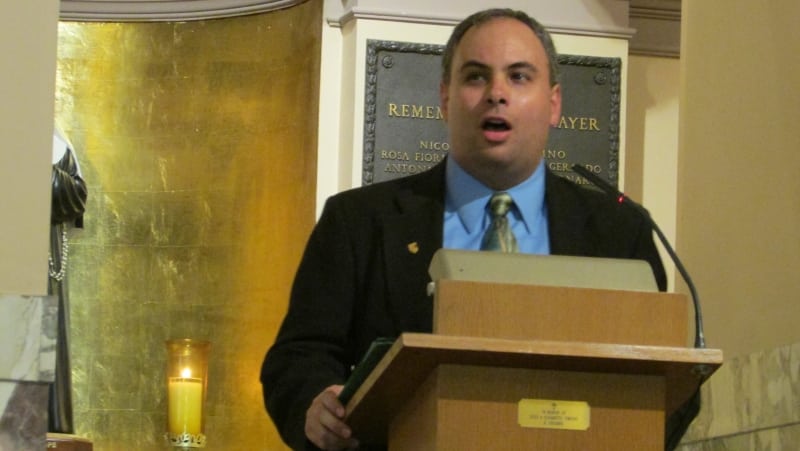
This peer-reviewed article appears in the Volume 52, No 1 (June 2025) issue of Horizons, The Journal of the College Theology Society.
Abstract
The USCCB statement resourcing lay ecclesial ministry relies on two biblical images; a mixed metaphor pairing an historical reality of the Pauline ecclesial co-worker and a Matthean parabolic narrative of day laborers. Examining this combined metaphor discloses how their tensions mirror the statement’s theological and pastoral divergences on the scope and authority of lay ministry leadership. The metaphor’s meaning and the statement’s text reinforce one another’s ambiguities enough that they can both highlight the vital ecclesial importance of lay ministry, or allow it to be interpreted in a clericalized way which undermines lay ministers’ value. This analysis is contextualized by pandemic-era stresses on lay ministers, even as there are new recognitions of their importance and value by Pope Francis and the synodal process. The status of these important ministers as true co-workers in the Pauline sense remains largely unrealized, highlighting the need for renewed theological and pastoral efforts to encourage their proper agency in the life of the Church.
Keywords: laity, lay ministry, ministry, lay ecclesial ministry, co-workers, vineyard, metaphor, theology of ministry, pastoral theology, pastoral practice
Introduction
The 2005 statement of the United States Conference of Catholic Bishops (USCCB) resourcing the development of lay ecclesial ministry in the United States and entitled Co-Workers in the Vineyard of the Lord is one that most lay US Catholics have never heard of but has had a significant impact on their experience of ministry. Though not a lengthy text, it marked the first time that the national bishops’ conference as an entire body focused an entire statement on lay ecclesial ministry, that is, that form of lay ministry in which baptized persons have taken on leadership roles in the church related to parish or diocesan direction or administration, music, catechetical, youth ministries, pastoral care, chaplaincy, and a wide range of other ministries. In a church that, in the last several hundred years and more, placed an overwrought importance on the role of the ordained priest, for the US body of bishops to recognize formally and to name the already burgeoning reality of lay ministry in general, and these specific leadership roles, was a true watershed. It was made possible through a steady development of theological and ministerial resourcing around lay ministry by theologians, lay ministers themselves, and the USCCB itself over multiple decades.
The title of the document relies on the biblically based image of “co-workers in the vineyard of the Lord.” It is not a single scriptural reference, however. Rather, it is at least two such references joined together. First, there is the term “co-worker” (Greek sunergos), which is used by Paul to indicate specific collaborators in his own ministerial work. The second part of the combined metaphor—the “workers/laborers in the vineyard”—is taken from a parable of Jesus (Matt 20:1-16). In this article, I present this titular image as a guiding metaphor that serves as a cipher for explaining how the bishops envisioned lay ecclesial ministry operating pastorally in the life of the church according to the 2005 statement. I also argue that the combination of these two contextually quite different scriptural images into a single metaphor to describe the reality of lay ministry creates a tension in the metaphor itself—a “mixed metaphor.” This mixed metaphor highlights a collaborative, creative, and more charismatic framework on one hand, and a maintenance-based, delimited, and somewhat performative egalitarian framework on the other. Further, precisely as the titular metaphor for the statement, it is possible to see within the statement’s circumscribed presentation about lay ministry—and about the specific nature and pastoral roles of lay ecclesial ministry leaders—aspects of these precise tensions. In essence, the statement does a great deal to articulate a theological and pastoral framework for a baptismally rooted and Spirit-empowered lay ministry in the church, even as it expresses that alongside language that imposes a much more restricted purview.
In analyzing the USCCB statement hermeneutically through the lens of this biblically based mixed metaphor, I consider how some institutional ecclesiastical considerations regarding lay ecclesial ministry have aligned more with the more circumscribed perspective, further influenced by the lived reality of clericalism in the church. The future practice of lay ministry, perhaps its very viability, may lie in ensuring that the more creative and charismatic aspects highlighted in Co-Workers are given equal or greater weight in the years to come.


 Request Dr. DelMonico's professional services for a liturgical, ministerial or leadership consultation, or for an academic or public presentation.
Request Dr. DelMonico's professional services for a liturgical, ministerial or leadership consultation, or for an academic or public presentation.